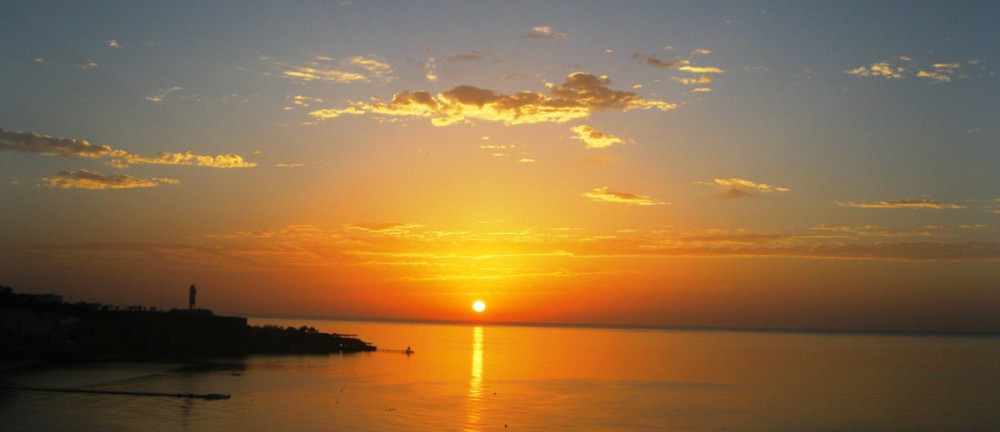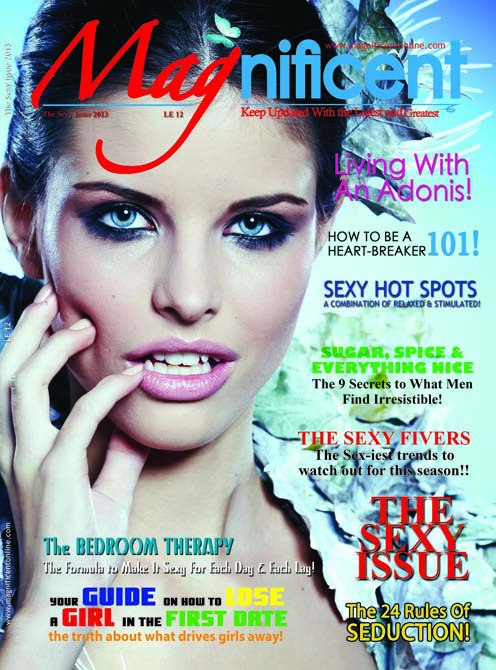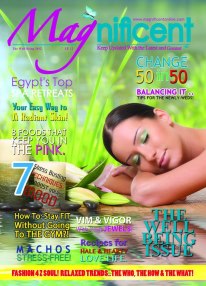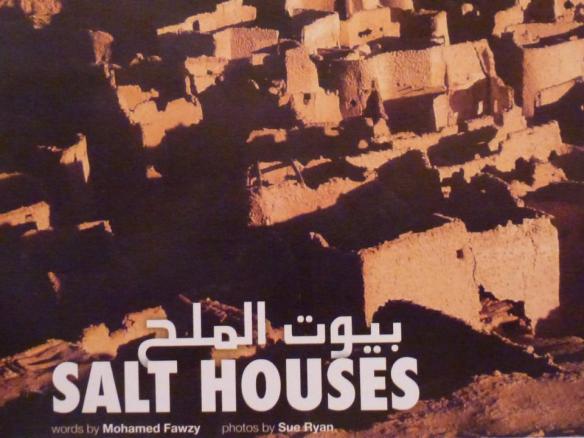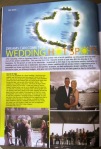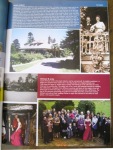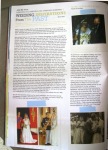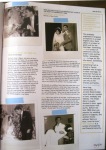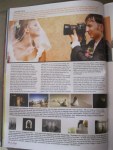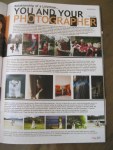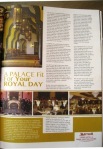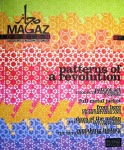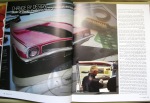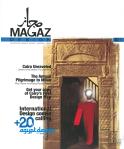I don’t usually post original text of articles. However, a serious issue in Egypt at the moment called for an article, and due to the nature of online magazine reading, it had to be kept short.
The published article, written for Magnificent Magazine, is at http://magnificentonline.com/2971/why-my-hijab-is-your-problem/
Here is the unedited text, for those who are interested to read more.
I hope the article inspires people to fight the increasing prejudice in Egypt and the banning of veiled women from entertainment and recreational venues.
Special thanks to Nourhan el Koptan for additional information, conversations about her own experience, and translations, all essential contributions to this article.
Saying NO to prejudice and ignorance – veiling and acceptance in Egypt.
by Susan Ryan and Nourhan el Koptan
Reports and discussions of veiled women being refused entry to restaurants or places of entertainment and well-being, to beaches, pools, gyms and other facilities, have recently bubbled to the surface and overflowed across social media. There are even reports of families with hijabi members being turned away from buying property in some compounds.
The Egyptian constitution supposedly prohibits actions that discriminate between people due to gender, religion or belief. But there are similar prohibitions in the constitutions and laws of many countries, and enforcing them is not easy, or is not always a priority for a government. With no threat of prosecution or penalty, the management of some businesses will just shrug their shoulders and go “So what? It is my business, I will do as I please.”
This issue makes me and I lot of other people angry. I will say some things here that might upset a few people, but what I hope is that this will inspire people to fight these bans, to boycott the places that discriminate. Whether you veil or not, you are sure to have friends who do, and they deserve the same rights as you. For those who think there is nothing wrong with the bans, I hope my comments and the experiences of the women treated so unfairly will make you think again and realize your prejudices, your inhumanity to others, those you are depriving of their rights.
For most foreigners the words veil or veiled bring to mind compete face and hair cover, or perhaps only the eyes visible. In Egypt and in this article we use the term veiled to describe not only those women, but the millions more who cover only their hair. Many of them dress just like sophisticated, fashionable women throughout most of the world, but they are just more covered. Not so long ago, most women across the continents of Europe, America, Asia and Australia dressed far more modestly, many covered their hair and many covered their bodies when they swam. Even today it is not only Muslim women in majority Muslim countries who cover their hair, but many women of different Christian denominations, and many Jewish women.
Would a restaurant banning a Muslim hijabi also ban and speak disrespectfully to a Catholic nun, visiting from Rome on pilgrimage to holy sites in Egypt? I doubt it. Would a hotel ban Mariam / Mary (mother of Jesus) who is always pictured with her hair covered, if she wanted to swim in their pool?
When discussion of the bans started on the Facebook page of Magnificent Magazine, our editor and others referred to it as racism. But racism singles out people by race only, and this ban is broader than racism – it is religious and gender prejudice.
Some venues are using the excuse that veiled women make foreign guests “uncomfortable”. That is illogical and ridiculous, because “foreigners” also wear hijab. One of my closest Muslim friends in Egypt is Swiss, and what first drew me to her in a crowded room was her covered hair. I was not veiled, but I knew instantly that we shared basic spiritual and social ideals through Islam, not just similar cultural and educational backgrounds as “foreigners’. Her headscarf told me this.
I also have hijabi friends of many nationalities who don’t live here but may visit me one day. I wonder if the venues banning our veiled Egyptian sisters would also ban all these foreign women? Or would the fact they are foreign and perceived as having money, cute accents, and blue eyes, or maybe carry the latest cool handbag from Paris, mean that they are allowed in?
Racism is terrible, but the impact of these two prejudices of religion and gender is potentially more extreme, People who are prejudiced react to something they do not understand, and perhaps fear. When prejudice is engaged, their brain switches off and emotion takes over, and when the emotion of prejudice is intense it becomes – hate.
We cannot allow prejudices and hatred to grow in Egypt. There is enough already. Prejudice feeds on and breeds more misunderstandings of how other people are and of how they choose to live. It feeds and breeds hate, hate leads to conflict and, in the extreme, to violence and war. Prejudice is the opposite of understanding, it makes it impossible for us to treat everyone as our sisters and brothers. It divides and embitters people, and it takes the humanity out of being human. It hurts others and diminishes the one with the prejudice – although they rarely recognize that it makes them a lesser person, they are too consumed by the feeling of being “right”.
As well as the bans from venues which make veiled women feel inferior, there are discussions on and off the internet about the women who feel pressured to give up hijab either to appear cool and / or to attract a man, or simply to get work in areas that may not accept veiling, such as tourism. There are far too many stories to document in an article, but let’s look at some examples of what is happening and be inspired to fight this. Aside from boycotting businesses who follow anti-hijab policy, I am not sure what we can do. But I hope this article inspires some ideas, and that readers will share those ideas on our Facebook page, so we can work together against this ignorant and dangerous trend.
Ministry of Tourism representatives have stated that the Ministry did not initiate the bans, and that people should report any places that ban them. Unfortunately, Mervat Tallawy, the head of Egypt’s state council for women, confirmed to Al Arabiya News that Egyptian law did not regulate on such issues. She did not see this as discrimination, and believes that each establishment has the right to impose its own dress code. She prefers that people don’t focus on this issue, but instead focus on issues of clearly vital significance to Egyptian women, such as “the new planet discovered by NASA”. This makes me even more determined that we have to fight this ourselves – governmental authorities will do little or nothing to force change.
The bans are not new, but are being more openly discussed, and this gives us the chance to do something about it, not just in whispers anymore, but to shout it down. One friend told me: “The most annoying fact about this is that we’ve had this attitude and behavior going on for most of our (young Egyptians) lives. There were always places that would advertise a vacancy and would state or hint that veiled girls even if qualified won’t be accepted or interviewed. I’ve heard of many girls who would take off their Hijab during their working hours and put it back on after work! Around five to seven years ago, three anchor ladies were fired from a local TV channel (Alexandria governmental / local channel) for wearing hijab. They sued and three years or so later they were back to their jobs, which is the reason that we can now see a couple of other veiled anchor ladies on national TV. Similarly, an Egyptian female pilot was also fired when she decided to wear Hijab. I was told that Mubarak and his wife were behind this “movement”. Ironically, a newly veiled actress opened up a female Hijabi only café in Cairo and was publicly lashed by the media for it. Such a long and frustrating history!”
Many multinational and national corporations or companies don’t employ veiled women, not just companies in tourism related areas.
Facebook pages are staring up, running comments on the places that are imposing bans and restrictions. Ones to follow include Hijab Racism https://www.facebook.com/Hijabstandup which poses the question “Why is my Hijab your problem?” and https://www.facebook.com/pages/%D8%A7%D8%B6%D8%B7%D9%87%D8%A7%D8%AF-%D8%A7%D9%84%D8%AD%D8%AC%D8%A7%D8%A8-%D9%81%D9%8A-%D8%A7%D9%84%D9%81%D9%86%D8%A7%D8%AF%D9%82-%D8%A7%D9%84%D9%85%D8%B5%D8%B1%D9%8A%D8%A9/1614607025460714?hc_location=ufi
The group Discrimination against veil in Egyptian hotels has enlisted a governmental website and a fax number that people can send complaints to: http://www.complain.idsc.gov.eg/GCP/Default.aspx Fax number: 24821107
Here are some of the senseless instances of prejudice that have been shared on social media. Each one makes me feel for the sister who experienced it, and feel sadness about those who show such narrow-mindedness by making these rules and decisions to ban or refuse veiled women entry or service.
You can see many examples and comments under hashtag #racism_against_hijab
Women were refused entry to Gabriel Restaurant in Marina, North Coast, and a staff member reportedly said “No veiled ladies are allowed in. I can let you in during week days, but now it’s the weekend and Eid. No!”
How ridiculous is that? What exactly did he think they were there for, but to celebrate Eid?
A woman commented, “As for’ Hijabies’ not being allowed into Marina beaches.. My husband and I tried five beaches yesterday none of which allowed me in because of my swimming suit. I swear I only needed them for their services as I have a baby. The annoyed look on my husband’s face breaks my heart. We should spread the word about this because there are many ‘Hijabies’ and we have the right to travel in our country just like the others.”
A friend gave an example, “A few years ago I was asked to leave the pool along with a couple of veiled cousins in a hotel in Sharm (Rosetta). Someone from the staff came and said that some of the foreign guests complained about us and that our swimming suits were “spoiling” the chemical of the pool and hence they won’t go in unless we go out! We refused. Staff kept coming back ad we joked about it at first but refused gently, then we decided to be more stubborn and stay for an hour or more. We were staying in the hotel with a VIP guest, so they couldn’t really force us out, but that didn’t stop them from asking us to leave again and again. I don’t know how they would have handled the situation of we were not VIP guests, I guess t would have been much worse.”
The JW Marriott reportedly removed the gym for women because they did not want veiled women there.
Reportedly La Vista is refusing to sell units to families that include veiled women. Hey are banning veiled women already resident from using the pool, and management even cut off the electricity of one family with hijabi members.
On the popular booking website booking.com the information for Sheraton Miramar Group states:
“The hotel welcomes the use of long swim suits on its beaches, however does not approve their use wthing the premises of the swimming pool Swimming in loose cotton clothing is also not permitted.”
(There is nothing saying that I cannot swim in something the size of a tissue, or even completely naked if I choose. I am almost tempted to book into Sheraton and try that, and see if I am banned.)
Also on booking.com Arabia Azur Resort, Hurghada, states that “Guests must wear proper swimwear at all times in the pool areas. Loose cotton clothing or long swimming suits are not allowed.”
Steinberger Hotels and Resorts also reportedly had anti hijabi policies but have apparently changed this – which shows there is no need for such negative policies.
Many more reports of restaurants and pools that ban, including:
Lemon Tree does not let veiled women in after 6pm.
Andrea at Hacienda won’t even let veiled women use the bathroom.
L’Aubergine
Cairo Jazz Club
JW Marriott
Fairmont Heliopolis
Wady Degla Club
Nile Maxim
Mojito (allowed veiled women entry only when there were less in number in proportion to the unveiled women)
Graffiti Four Seasons
Oasis Hotel
Grand Hotel, Hurghada
The Beach Marina 5
Arabia Azur Resort, Hurghada
Citadelle Azur, Sahl Hasheesh
Paradise, Ras Sedr
Club Azur Makadi
NOTE: all reports of bans and restrictions included in this article are from internet and social media comments. They have not been verified by MagnificentMagazine – that is difficult to do, because in many cases the places involved will just deny or change the story to make their reason for banning women seem as though they have a right to do this. The commenting women have not been named, as we do not wish to do that without individual permission.
Confession time. In my birth country, Australia, not many women cover their hair. While the number of Australian Muslims in growing, they are still a minority and many do not embrace modest dress. Exhibitions such as Faith Fashion Fusion http://www.powerhousemuseum.com/faithfashion/ have helped educate non-Muslims about Islamic dress, but still many people have preconceptions and prejudices. For 10 years I had been regularly visiting Egypt, and had many covered friends there. While I was not Muslim, I was always trying to explain what I knew of Islam to non-Muslims in Australia, to break down the false stereotypes that I constantly encountered in people’s perceptions, ideas mostly drawn from or encouraged by prejudiced media.
Then one morning I was walking down the street. A woman who was completely covered, including her eyes, walked towards me. We were the only people on the street. A chill of ….uncertainty? fear? made me stop in the middle of the street as she approached me. She politely asked me in perfect English, “Am I going in the right direction to the library?”
The chill disappeared, and I instantly felt guilty and stupid for my reaction. I would never have had that reaction in Egypt, where I was surrounded by covered women, so why in Australia? For some years I had been teaching in a Fashion degree course and encouraging my students to be more aware of codes of modest dress, why they are important, and why we should accept the choices of those who veil or cover, however they choose to do that. What a hypocrite I felt at this moment. How could I tell my students one thing, and have such a prejudiced, illogical reaction?
This incident was soon after September 11, and the Australian government and media were on an anti-terrorism or rather an anti Muslim binge. I felt guilty because of my gut reaction, but most disgusted because it showed me that the media sensationalism had managed to influence me, despite my years as a journalist and being constantly aware of the need to NOT believe the media, much of the time, and despite my leaning toward Islam and my experiences in Egypt.
I determined NEVER to let negative views on veiling or modest dress influence me again, but instead to be as open and accepting as I was asking my fashion students to be, and to educate and encourage others to see beyond the stereotypes. To hear that women are being rejected from some places or careers because “tourists”, “foreigners”, or simply “other people” may find their dress confronting or feel uncomfortable being with them, just makes me sad and angry. And determined that in Egypt we should not accept such rejection.
There are many prejudices in Australia, as there are in every country, despite its claims to be a democracy and “land of the fair go for all”. My father faced prejudice from his teenage years and he never forgot the sting of it. He was in several minority groups including being the “wrong” religion. The bias and sometimes hatred with which others treated him could have made him bitter. Instead he tried to be without prejudice, and taught my sister and I not to be prejudiced, to be understanding instead of rejecting. This meant no prejudice about religion or philosophical beliefs, race, skin color, educational level, financial level, occupation, or how a person dressed. Even though he had definite political views, he also encouraged us not to be prejudiced against the political views of others, to be always open to seeing the other person’s perspective.
Not accepting prejudice, and, when possible standing against it, was one of the greatest gifts my father gave me. It has allowed me to step open-eyed and open-hearted into the world. So this is why seeing prejudice angers and saddens me, and I wish I could wipe all prejudice from the world. That may seem an impossible dream, but I will always at least try to make that reality in my immediate environment, which is now Egypt.
When I was living in Siwa Oasis, I was one of the few women not completely covered. In Siwa the women cover completely, even their eyes, whenever they leave home or when there are men visiting who are not close relatives. Life was similar when I lived in Nuweiba, where Bedouin women mostly cover all but their eyes. In each of these places I lived more than a year and I covered neck to ankle, but only covered my hair at religious ceremonies or if I was the only woman (as a foreign guest) in a group of men.
But I was accepted by the women, respected by the men, and was definitely never restricted from entering any café or business, always welcomed. In both places they quickly knew I was not a “rich foreigner tourist”, so they were not just excusing my dress because they thought I had money to spend in their business. If a relatively closed society such as Siwan or Bedouin can accept my uncovered face and hair, all places in Egypt, especially those claiming to be or wanting to be seen as progressive and modern, should be able to accept women who cover.
In Australia in the 1960s we went through bans where women could not enter some venues wearing pants / trousers. How stupid those bans look, in hindsight. How backwards it made Australia look to the rest of the world, and how frustrated were the women who were banned from doing something that they should have had the right to do. If Egypt does not stop these bans, it faces looking just as narrow-minded, for not giving women their right to dress as they want and as many feel their beliefs require.
I do not yet veil, though I am drawn to it and probably will eventually make this commitment to my beliefs. I have many veiled friends here and many hijabi friends in my birth country, where veiling is increasingly accepted. I have complete respect for each woman’s reasons to dress modestly, as she chooses. For me, the choice is between her and Allah, and no-one else has the right to judge this or ban her because of her choice. To hear that veiled women are being refused entry anywhere disgusts and saddens me, and given that Egypt is a majority Muslim country, it simply defies logic.
I will never support any business where my veiled sisters are not accepted and treated with respect, just as I would never support any business that did not accept someone because of skin color, because they are left handed, or because of any other completely illogical prejudice.
If the presence of a veiled woman “offends” or “makes uncomfortable” a foreigner or even another Egyptian, she should not be made to feel embarrassed or pressured to dress less modestly. Really we should be sorry for the prejudiced person’s lack of understanding, intelligence, and humanity, and do what we can to ensure these bans do not continue or spread further.
WHAT ELSE CAN YOU DO?
Check out and support https://www.facebook.com/WorldHijabDay also on Instagram. This cause is not just about one day, its aim really runs year round: “Before you judge, cover up for a day”. Some of the stories women tell on here are extraordinarily moving.
Modest dress is now a University level subject, there have been museum exhibitions about it, conferences, and books including:
http://www.powerhousemuseum.com/faithfashion/
https://books.google.com.eg/books/about/Modest_Fashion.html?id=60FDqEAV_dIC&source=kp_cover&hl=en
